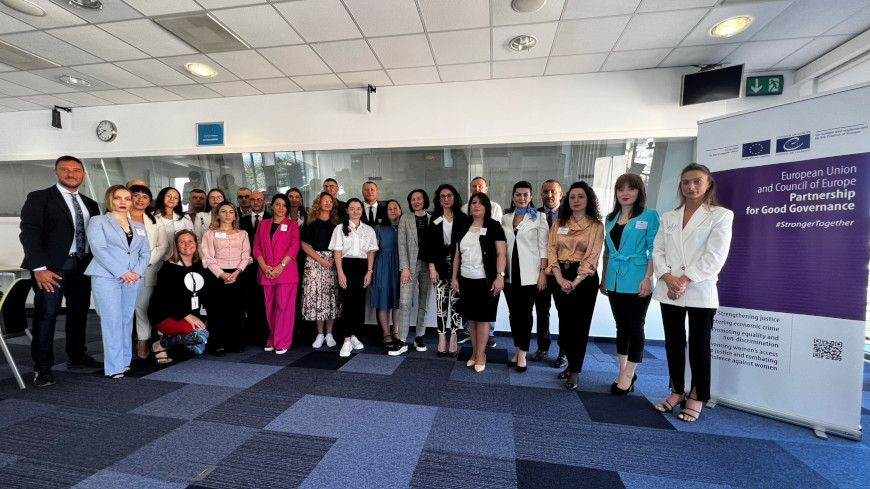The year-long mentoring programme for legal professionals on women’s access to justice was initiated with a training in Budapest on 5-7 September, with 24 mentors from the Eastern Partnership countries.
Over the course of three days, judges, prosecutors and other legal professionals from Armenia, Azerbaijan, Georgia, the Republic of Moldova and Ukraine advanced their knowledge of relevant European gender equality standards and increased their mentoring skills.
Participants discussed challenges and opportunities to encourage legal professionals to put on their “gender glasses” and find ways to effectively embed mentoring in the justice sector, as a method for learning and advancing competencies.
The gathering also served as an opportunity to exchange experiences across the Eastern Partnership region and build professional connections on human rights issues in general.
This training activity marks the beginning of the third mentoring programme cycle on women’s access to justice for legal professionals from the Eastern Partnership countries, which has already resulted in a network of almost 800 individuals. The established network is championing gender equality issues in courts, prosecution offices and judicial training institutions across the region.
This activity was organised in the framework of the project “Women's Access to Justice: implementing Council of Europe’s gender equality and violence against women standards”, part of the joint European Union and Council of Europe programme “Partnership for Good Governance”.





